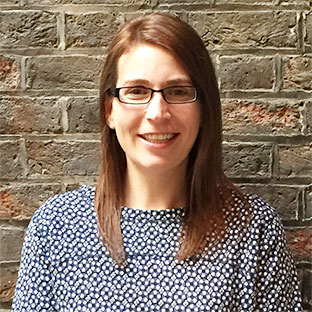We talk about the ‘power to create’ at the RSA. This is a non-traditional approach to creativity, encompassing much more than creative art. Instead, we mean creative approaches. The power to design your own solutions to whatever the problem is that you are trying to fix. With the emphasis being that anyone and everyone, should be able to navigate and harness this power.
The Whole Person Recovery initiative that we have been delivering in West Kent has allowed for people experiencing addiction and recovery to have meaningful involvement in how the support that they want and need gets delivered. Perhaps it’s surprising, or perhaps not, that creative art has become a central way of people developing their creative processes and beginning to translate them to life in a wider and wiser sense.
When we think about art, it often conjures up the image of an evocative scene, a thought provoking abstract or a beautiful portrait. But the process involved in the creation of a piece of work is often something that we don’t get to experience.
A member of our recovery community referred to this process as ‘finding your brave’. It was the first time he could remember putting himself on display for open judgement and critique. He was surprised at the critique that he got; suggestions for improvement, how he could look differently at his own thought process and how the end result that he had achieved didn’t really need to be the end at all. It drove his development and investment in the process.
Sometimes, the story is more important than the conclusion, the journey being the value, rather than the end result.
When newcomers have sat in the creative sessions run as part of our ‘Whole Person Recovery Programme’, you often hear the words ‘oh but I can’t’. Almost everybody can put a mark on a page, fashion things into shapes, or create something from next to nothing. Not just in an art group, but in life.
For our creatives, the work produced has been about exploring their own journey, finding their voice and developing a positive relationship with themselves as well as other people in recovery.
We are very pleased to contribute some of the work generated in the last four years of our project to a showcase of art work created by people in recovery in Kent. The free to attend ‘Art in Recovery Exhibition’ will run next week from 22nd – 25th February in Stone Hall and Exhibitions Hall at Sessions House in Maidstone.
If you are in the area, I would urge you to view it. The artists’ work is inspiring, creative and beautiful. But above all, it sends a strong message about the potential of recovery as a collective power to create something wonderful.
As one of the pieces of art proudly proclaims: Broken Crayons Still Colour
To correct this error:
- Ensure that you have a valid license file for the site configuration.
- Store the license file in the application directory.
Related articles
-
From Whole Person to Whole Community - the future of recovery
Susie Pascoe
Recovery in terms of ‘health’ care, rather than ‘sick’ care, and a long term focus on wellbeing, instead of simply treating the symptoms, is at the core of our latest report.
-
Blog: Not ill, but not well – barriers to seeking help for my booze problem
Lucy Rocca
For many people, Christmas is a time that their drinking increases "all in the name of festivity" and we worry about it in January. Here, Lucy Rocca, founder and editor of Soberistas.com, talks about her own decision to stop drinking, and the rise of her co-produced website that supports 34,000 people with living sober.
-
Blog: What do people really need?
Sunny Dhadley
Sunny Dhadley, Director of The Recovery Foundation and manager of Wolverhampton SUIT, explains how his peer-led organisation has helped those with addiction to find recovery.



Be the first to write a comment
Comments
Please login to post a comment or reply
Don't have an account? Click here to register.